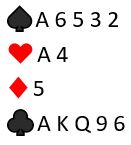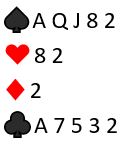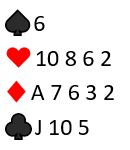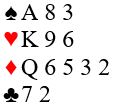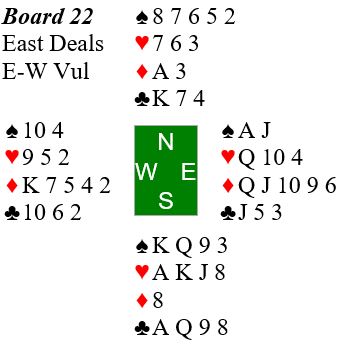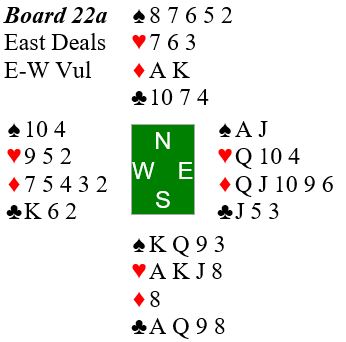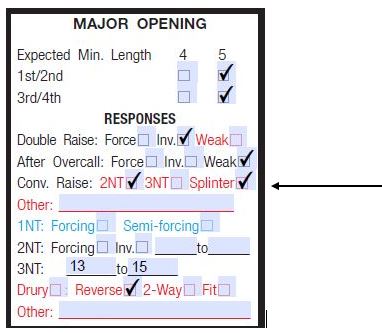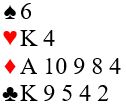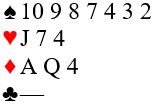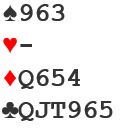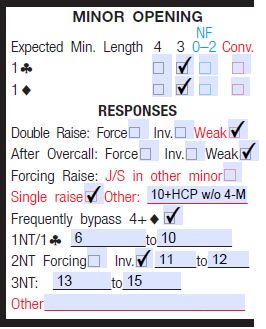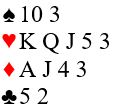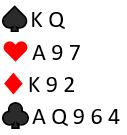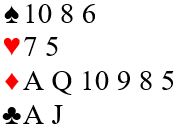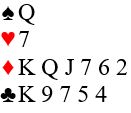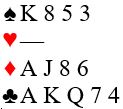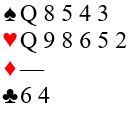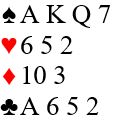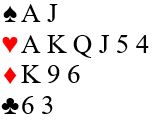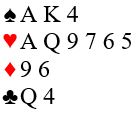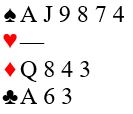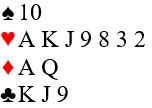Update below
Two passes to you. What’s your opening bid with this nice hand and 5-5 in the black suits?
Your thoughts? My thoughts will be in update tomorrow.
Update: Most players would open this hand one spade, but I recommend one club. It’s a much better than minimum opening, and you will never lose the spade suit. I plan to bid and rebid spades at my next next two tuirns. Partner will know that I am at least 5-5 in the black suits, and it leaves open the possibility of game or slam in clubs. When you open the bidding plan your rebid.
Contrast the above with this hand from Sunday:
This hand I opened one spade in 1st seat. It’s a minimum opening bid, and this time spades are much better than clubs. I will not strain to bid the club suit at the three level if the auction becomes competitive.
